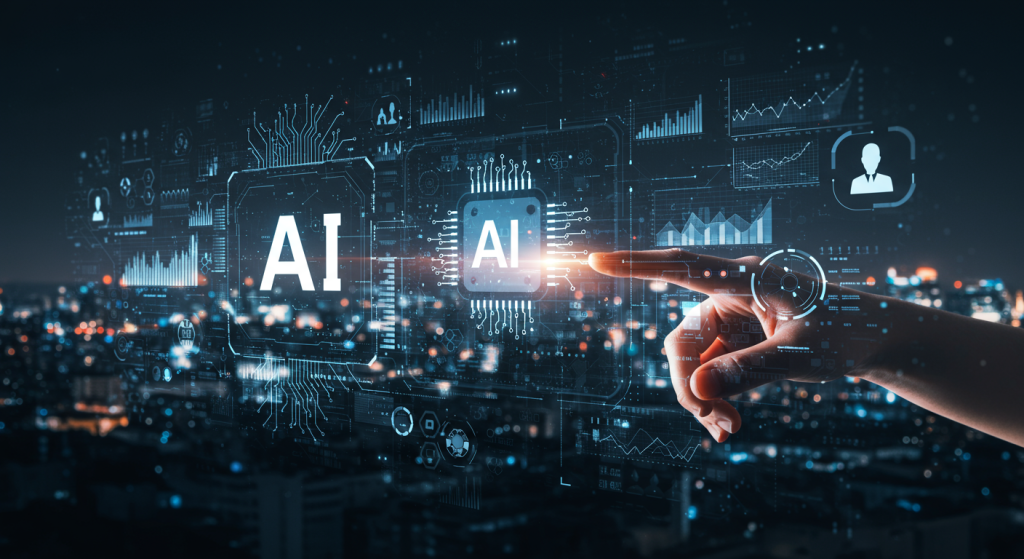
As a system, a computer, besides its CPU, crucially relies on a series of management systems like process management, memory management, and peripheral management to ensure its effective operation. However, if we view large models today as a new CPU, many problems with these peripheral systems remain unsolved, which is actually a major obstacle. This leads us to ponder: if we consider AI Agents a revolution in personal computing, meaning the purpose of personal computing is no longer to provide a workbench of various digital tools, but to directly input demands and output final results, then relying solely on large models (analogous to CPUs) is insufficient. A vast number of related management systems need to be built. And within this, there are numerous engineering problems that need to be seriously addressed.
Large Models: The New CPU of the AI Era
Over the past two years, large models have developed at an astonishing pace, their “emergence” of capabilities astounding everyone. They are like the CPU in the computer world, the core computing power and logical processing unit of AI intelligence. The progress of large models themselves is undoubtedly the biggest driving force behind AI development. They have enabled AI to move from “hearing and speaking” to “understanding, thinking, and generating.”
The Absence of Peripheral Systems: A Bottleneck for AI Personal Computing
However, just as a computer with only a CPU but no operating system, memory, hard drive, or peripheral management cannot function effectively, current large models also face the huge challenge of missing “peripheral systems.” If we view AI Agents as the next revolution in personal computing—where the purpose of personal computing is no longer to provide a workbench of various digital tools in the digital world, but to directly input demands and output final results—then relying solely on large models is far from enough.
There are numerous engineering problems that need to be seriously addressed, for example:
- Better Virtual Machines: How to provide a stable, efficient, and isolated runtime environment for AI Agents?
- Longer Context: How to enable AI Agents to remember and utilize longer historical information when handling complex tasks?
- Numerous MCPs (Modular Capability Platforms): How to modularize and service various AI capabilities, and achieve efficient combination and scheduling?
- Smart Contracts: How to establish trust mechanisms between AI Agents to ensure automated task execution and reliable results?
These engineering problems are crucial for AI to move from being “usable” to “user-friendly” and “trustworthy.” They are the “capillaries” and “nerve endings” that allow AI to truly integrate into our lives and become a productivity tool.
The Value of Engineering Precision: The Art of Complex and Exquisite Shelling
After more than two years of rapid industrial development, we should clearly see that the progress of large models themselves remains the biggest driving force. But as always, every time humanity achieves a technological breakthrough, it finds that “improving engineering precision” still holds immense value for technological development.
You could say that every mobile phone is a “shell” for a CPU, but this shell can also be a complex and exquisite product of engineering. This certainly has meaning, and it will undoubtedly experience a period of flourishing and fierce competition, during which companies of significant value will emerge. In this worldview, opportunities also belong to more entrepreneurs.
VERTU's VPS is a prime example of this “engineering precision.” It's not just about simply stuffing a large model into a phone; it's about building a complete, complex, and exquisite set of “peripheral systems” around the large model:
- AI Agent Application Management Platform: Realizes the production, distribution, scheduling, and management of AI Agents, truly bringing AI capabilities to fruition.
- Smart Agent Wallet and Contextual Authorization Mechanism: Solves the trust and compliance challenges of AI payments, enabling AI to conduct transactions securely.
- MCP Servers Architecture: Modularizes and services various AI capabilities, achieving plug-and-play functionality and efficient combination.
- Security and Privacy Protection: Provides the highest level of security for AI Agent operation at both hardware and software levels.
These “shelling” engineering arts precisely transform the potential of large models, this “new CPU,” into tangible, operable, and trustworthy productivity tools in the hands of executives. They make AI no longer a distant technological concept but an accessible intelligent assistant.
Opportunities for Entrepreneurs: A Flourishing AI Ecosystem
In this worldview, opportunities also belong to more entrepreneurs. Large models are the foundation, but the development of various “peripheral systems” and the improvement of “engineering precision” around large models will give rise to countless innovation opportunities. Whether focusing on AI Agent development, AI capability modularization, AI security and compliance, or the deep integration of AI with specific industries, all will be indispensable and important components of the future AI ecosystem.
VERTU VPS's practice proves that in the AI era, merely having a powerful “CPU” is not enough; it also requires exquisite “engineering precision” to build a complete, efficient, and trustworthy AI system. This is where VPS's value lies, and it is key to leading the personal computing revolution.








